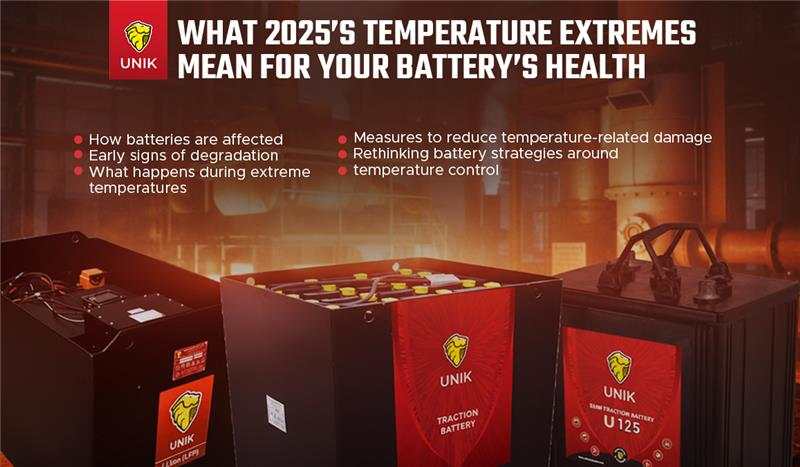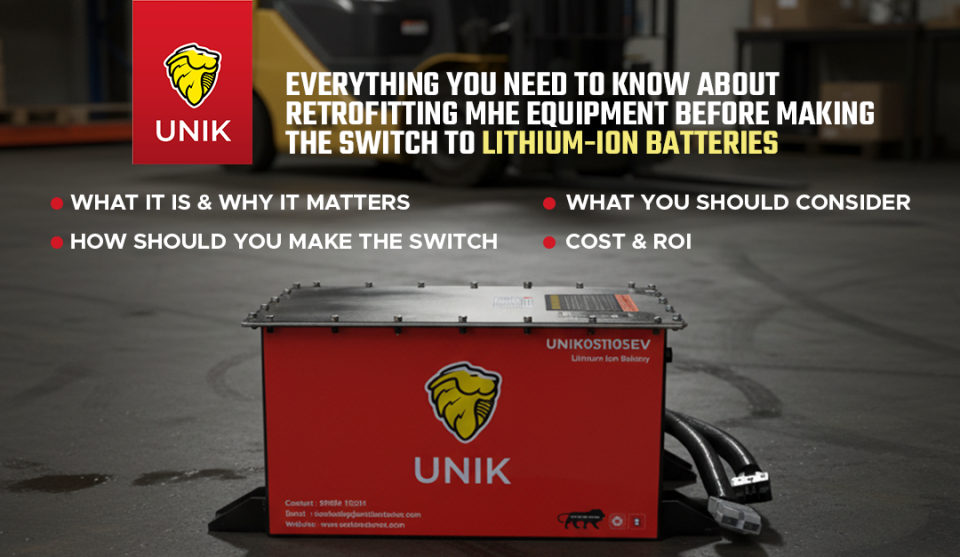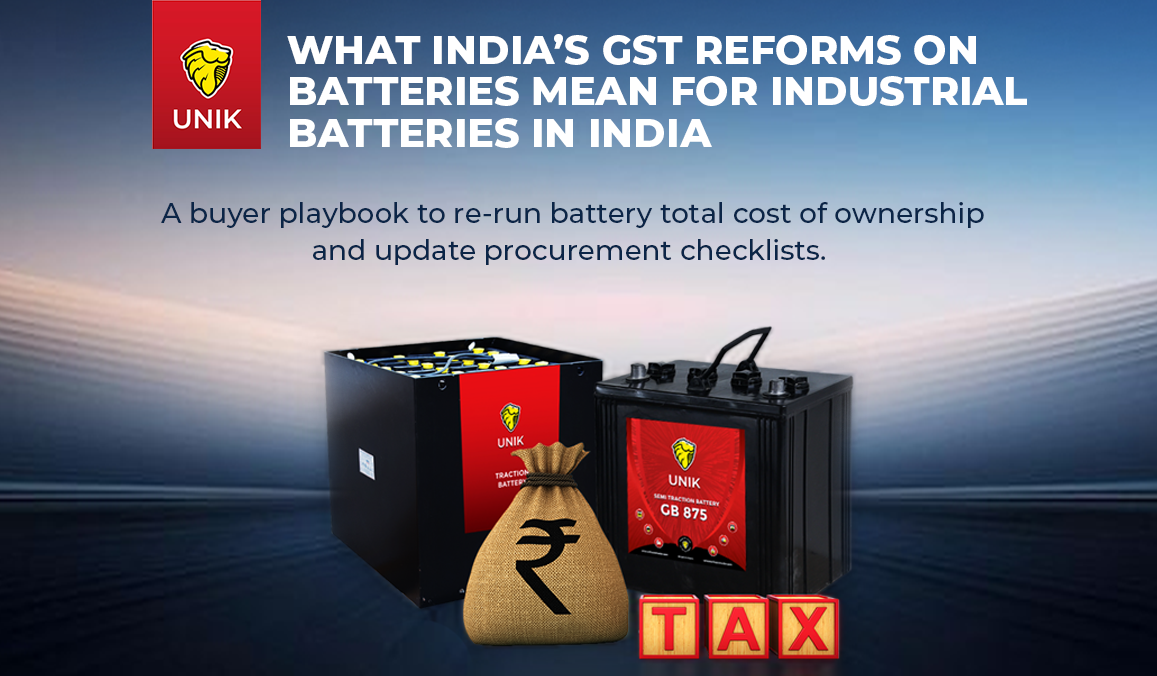Understanding Heat-Sealed Batteries: Enhancing Safety, Reliability, and Battery Longevity
Battery safety is critical in industries relying heavily on robust, dependable power sources such as electric forklifts, golf carts, and industrial machinery. One technology significantly advancing battery safety is heat-sealed battery construction. At UNIK Batteries, we utilise advanced heat-sealing techniques to provide superior safety, reliability, and longer battery life for demanding industrial applications.
What Are Heat-Sealed Lead-Acid Batteries?
Heat-sealed lead-acid batteries are constructed using a specialised sealing process where battery casings are permanently bonded through heat application. Unlike traditional battery sealing methods using adhesives or mechanical seals, heat sealing creates a highly durable, airtight enclosure, ideal for demanding industrial environments.
Key Benefits of UNIK's Heat-Sealed Battery Technology
Electrolyte Leakage Prevention
- Higher resistance levels, which may impact power output.
- Reduced charging efficiency, resulting in longer charge times.
- Increased operational strain, potentially leading to faster wear and tear.
Here is why winter battery maintenance is essential:
- Proper care reduces the risk of cell damage due to freezing temperatures.
- Batteries that are well-maintained offer operational efficiency.
- Regular maintenance extends the life of your batteries, saving on replacement costs.
Taking these steps will keep your industrial forklift battery in peak condition, even when temperatures plummet.
Lead Acid & Lithium-ion Battery Care in Cold Weather
Maintenance of Lead Acid Batteries
Lead acid batteries are more sensitive to cold temperatures because their electrolyte solution can freeze, particularly when the battery is in a low-charge state. For efficient battery care in cold weather, follow these tips:
- Charge fully after each use as a fully charged lead-acid battery is less likely to freeze.
- Store batteries in a temperature-controlled environment indoors or in a heated area to protect them from the elements.
- Inspect the battery for cracks or leaks, as these can worsen in the cold.
- Lead-acid batteries need adequate water to function correctly, so check and refill water levels routinely.
- Clean terminals regularly to prevent corrosion and improve conductivity.
Lithium-ion Battery Maintenance
While lithium-ion batteries fare better than lead acid batteries in colder weather, they still require care to avoid performance drops. Follow these tips for top-notch lithium-ion battery maintenance:
- When starting your material handling equipment, give your battery some time to warm up just as you would allow your car battery to reach an optimum temperature before driving.
- Lithium-ion batteries should not be charged at sub-zero temperatures, as this can lead to permanent damage.
- Lithium-ion batteries are more efficient when they maintain a moderate charge level in winter between 30-80%, to reduce strain on the cells.
Following these steps can help ensure that both lead acid and lithium-ion battery maintenance routines are winter-ready.
Winter can be challenging for industrial forklift batteries, but with consistent battery care in cold weather, you can protect your investment and keep your operations running smoothly. By paying attention to winter battery maintenance and adjusting your care strategies for different battery types, you can enhance battery performance and extend its life, no matter how cold it gets.
Protect your operations all season long! For more tailored solutions, explore our lithium-ion battery and lead acid battery sections to find the best fit for your material handling operations.
Contact us today to learn how our battery solutions can power your success.






